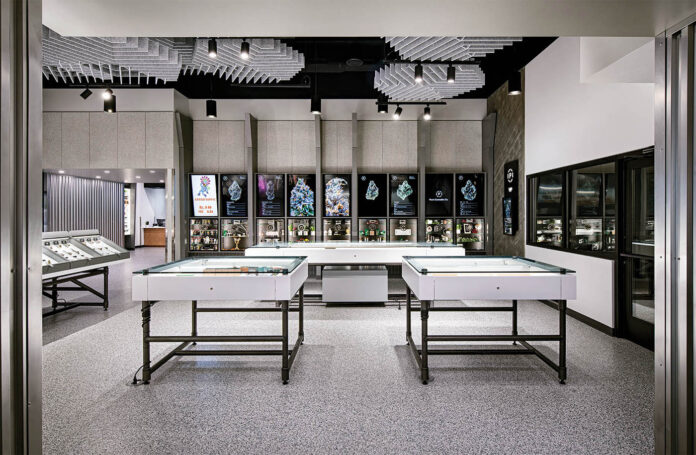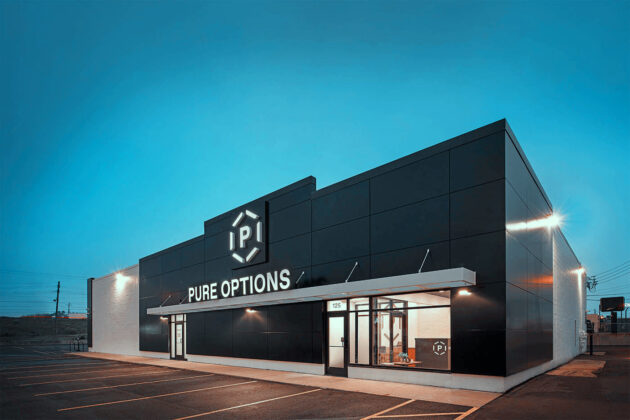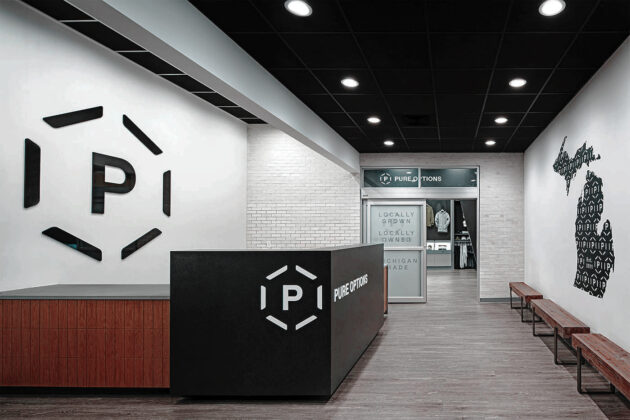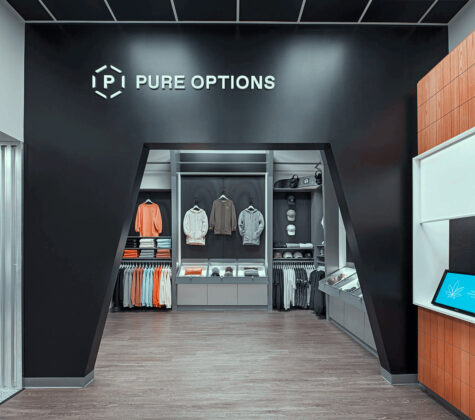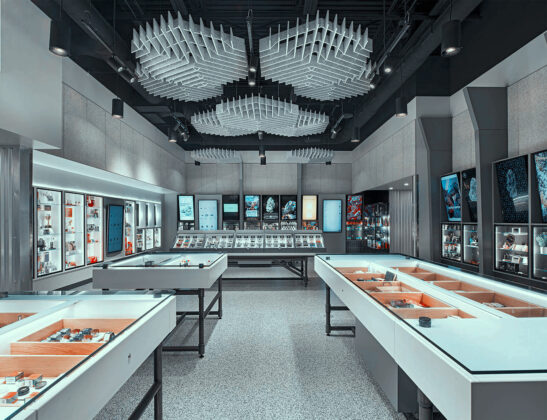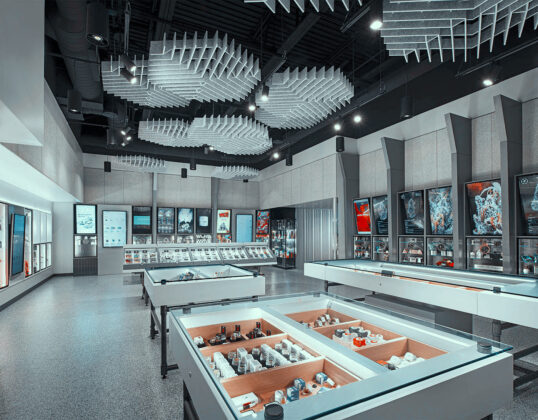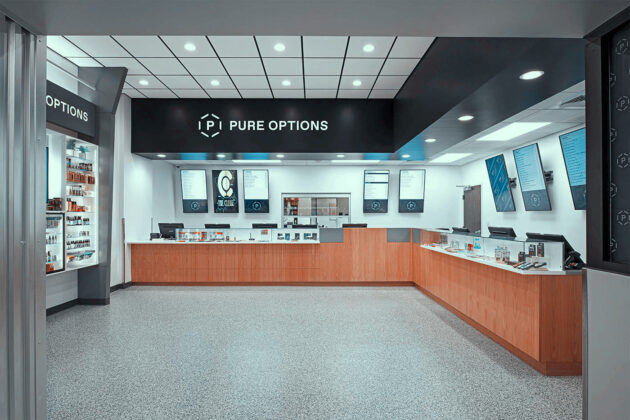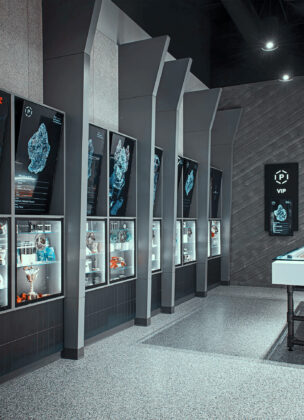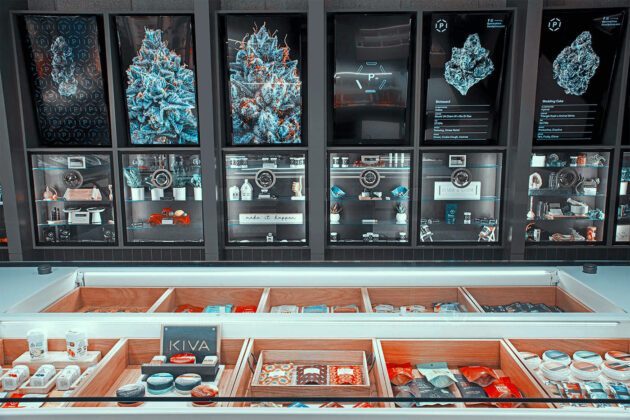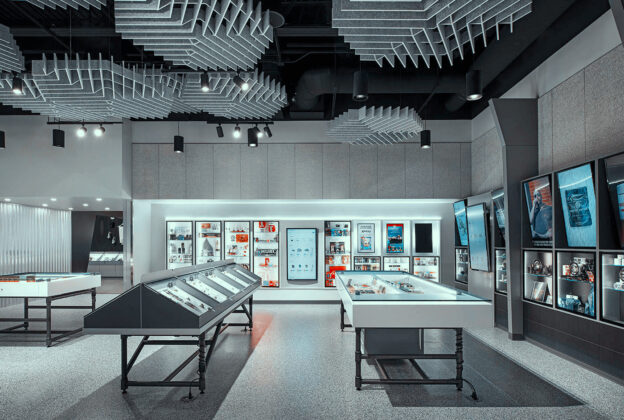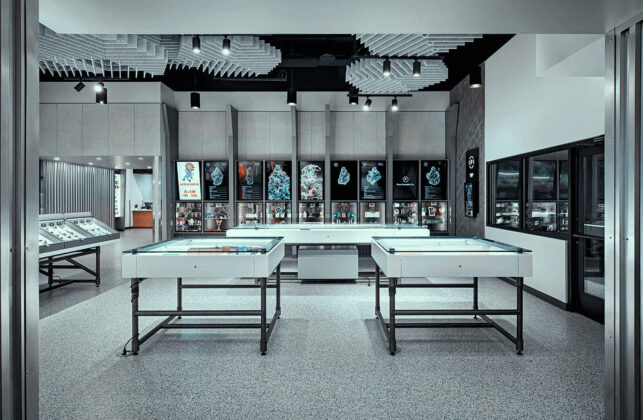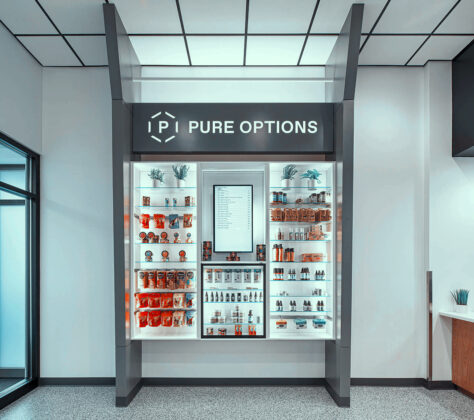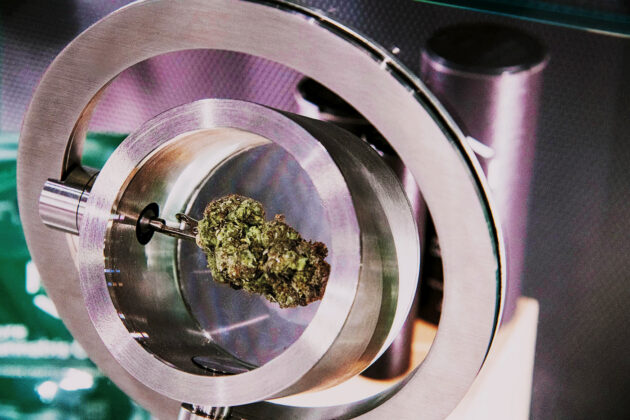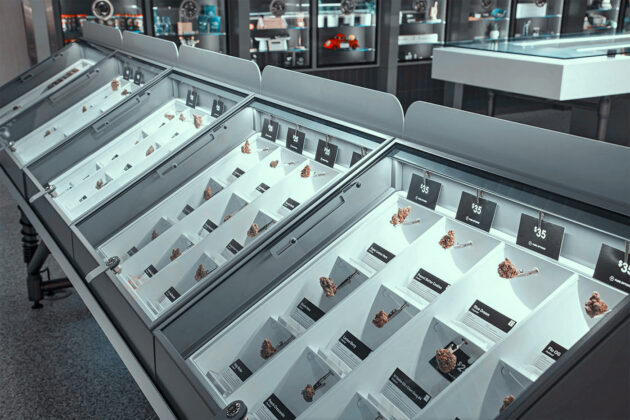Of all the states to watch in the United States cannabis market right now, few are as exciting as Michigan. The third-largest market by revenue, hitting almost $1 billion in legal sales, Michigan has nearly 400 medical dispensaries (called “provisioning centers”) and 300 licensed adult-use retail stores. The state’s unlimited license structure makes it a challenging market for multistate operators (MSOs) — who typically favor limited-license, low-competition states — but it also makes Michigan fertile ground for small and medium-sized cannabis businesses.
One of the state’s early players making big waves and growing quickly is retailer and cultivator Pure Options. Founded by local entrepreneur and Michigan native Sam Usman Jr., Pure Options opened its first retail location on Lansing’s south side in 2011, just three years after passage of the Michigan Medical Marijuana Act laid the foundation for today’s booming adult-use market. Usman was introduced to the industry through a passive investment in a vertically integrated Colorado business; when he saw the enormous potential in the burgeoning industry, he left his career in liquor distribution and started exploring the possibility of opening a cannabis business in his home state.
Fast forward a decade, and Pure Options ranks among the biggest cannabis businesses in the Wolverine State, with almost 400 employees, six active retail locations, and 150,000 square feet of cultivation and processing. With the latest store in the Frandor center in East Lansing now complete and poised to be the company’s flagship, Pure Options is entering 2022 with a new aesthetic for its flower-forward dispensaries, courtesy of Toronto-based dispensary designer SevenPoint Interiors.
“Over the years, we met with all the big-name designers to help us create the perfect flagship shop in mid-Michigan,” said Usman. “After meeting with the team at SevenPoint, it was an easy decision to move forward with them. They actually listened to our unique needs, and they understood the vibe, feel, and experience we were looking for within our budget.”
According to SevenPoint designer Jano Badovinac, “Pure Options wanted this to be the flagship location for the entire brand. They gave us a very intricate brand package from which we drew our direct inspiration, with their logo specifically playing a prominent role in the design direction.”
Architecture and design
The brand’s hexagonal logomark is derived from the chemical structure of THC and CBD, and its subtle influence can be seen everywhere, helping the store “arrive at this clean, crisp, modern-industrial feel.”
From the white honeycomb tile floor to the acoustic baffles on the ceiling, the hexagon creates a stylistic cohesion not commonly seen in dispensaries. “With such a strong brand presence, [Usman] wanted the visual identity to carry through the entire space,” Badovinac said.
The designer highlighted the angled display tables, which were directly inspired by the shape of the logo, as well as a number of sharp fixtures with rounded corners, referencing the “P” inside the mark. “We wanted the fixtures to look like they were part of a family while also enhancing the technical expertise brought to the project,” Badovinac continued.
The greeting area inside the Frandor store is warm and inviting, like a palatial, upmarket sauna. The area opens onto the sales floor, which references the building’s industrial heritage with a buffed concrete floor and an array of metal fixtures and displays. The shop floor’s entrance and exit are framed with stark, ribbed orange metal, highlighting a novel design trick SevenPoint harnessed to create uninterrupted flow throughout the customer journey.
“We wanted to pay homage to the industrial aspects of this space by bridging the gaps between the educational center and the point of sale using shipping containers,” Badovinac explained.
As proponents of industrial salvaging — the process of utilizing (or appearing to utilize) found materials in a space — SevenPoint aspired to make the area “feel” as if some of the materials and objects were left behind by a previous tenant. The tactic is evident in the faux metal pillars and heavy modular metal display tables, akin to those often found in factories. Yet, despite its grittier industrial roots, the space is clean, polished, and well lit.
“It’s very bright in there,” said Badovinac. “But even as the day progresses and the light lowers, the fixtures all have integrated lighting to help make them pop. It was a high priority that the product was showcased as much as possible.”
Products and merchandising
From a product perspective, the dispensary rightly put flower in the spotlight. Known for its exceptional weed, the brand’s signature strains Moonbow, Rainbow Belt, and Garlic Breath all placed in the top three in their categories during this year’s Michigan Cannabis Cup, making them a major draw for the company’s stores.
Digital touchscreen signage showcasing the brand’s frosty, extraterrestrial buds frames the sales floor, allowing customers to peruse strains and learn about their terpene profile and cannabinoid content. Badovinac said the screens also can be utilized to show revolving content animations, giving the company ample merchandising opportunities should its seek additional revenue from partnering brands.
One of SevenPoint’s most significant innovations is its line of bud capsules, which have become a staple of the company’s custom and “plug-and-play” dispensary buildouts. The magnified glass pods allow customers to get a clear look at a bud’s structure and trichomes, while the automated gravity sensor valve lets out the aroma.
For Pure Options, SevenPoint applied this proprietary technology to a wall display unit, marking a new evolution for in-store displays. “This is a first-time integration for these sensory pods,” Badovinac explained. “We made these pods in-house and actually incorporated them into the external glass display of the cases, the idea being to truly showcase the flower, which is the star of the show at Pure Options.”
The flower-as-a-focal-point theme continues to the clone room. Usman said Pure Options was awarded the first licenses to sell clones in the state of Michigan, and the room is visible from the shop floor, giving customers an experiential glimpse at some of the world’s best-known strains in their fledgling stages. Budding cultivators also have the opportunity to grow some gas for themselves: Michigan law permits up to twelve plants per person. Pure Options expected to start selling clones in late November, and the company demonstrated its commitment to bringing the very best flower to the Wolverine State by securing the exclusive rights to Portland-based Archive Seed Bank’s genetics and forming a partnership with East Oakland’s (California) famed DEO Farms and Los Angeles’s Wizard Trees.
Expansion plans
With expansion into new local markets and additional cultivation capabilities coming online, Usman sees this as Pure Options’s moment. “We’re very excited,” he said. “We plan to open three more retail shops in Detroit and Grand Rapids, the state’s other major markets. We just broke ground on another 65,000-square-foot cultivation facility. We will have the largest tissue culture lab, breeding, and nursery facility in the state, and we will also lead the way with solventless extraction in Michigan with our proprietary strains from our partner Archive Seed Bank in early 2022.
“We have an opportunity to become one of the most recognizable brands in Michigan,” he added. With a decade of experience in the local market and position at the vanguard of new licensing opportunities, Pure Options is becoming a statewide player in one of the country’s biggest and most exciting markets.
Badovinac pointed out SevenPoint’s close relationship with its parent company, Visual Elements, a longstanding Canadian luxury retail designer, gives the firm an edge over other dispensary architects. “One of our biggest strengths has been working in partnership with the Visual Elements facility, which builds everything for us,” he said. “That allows us to streamline the design process and have shorter lead times than most design departments, because we are so well integrated with the engineering, production, and budgeting departments.”







